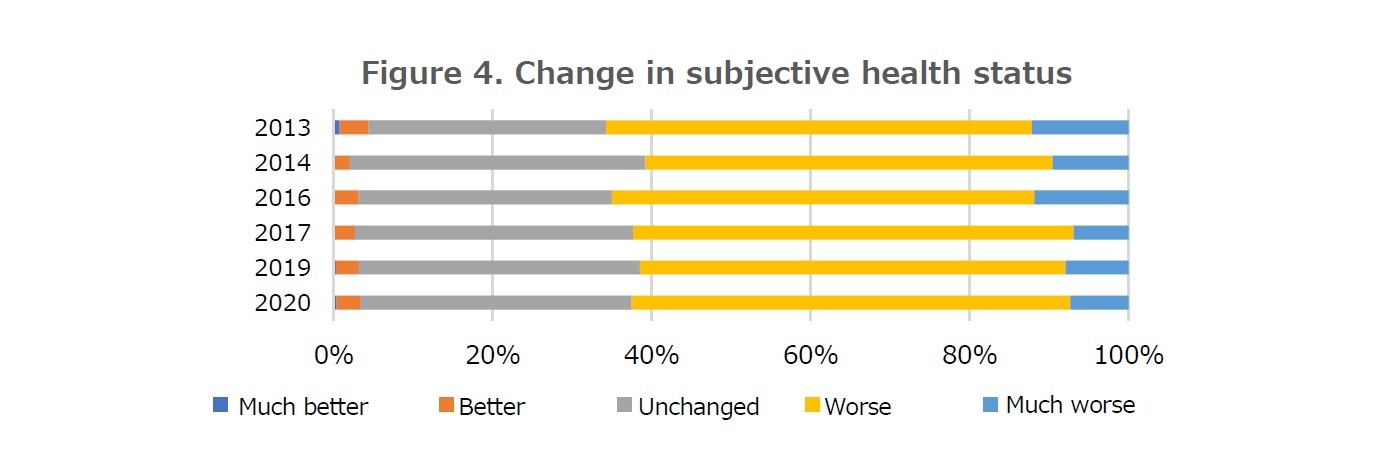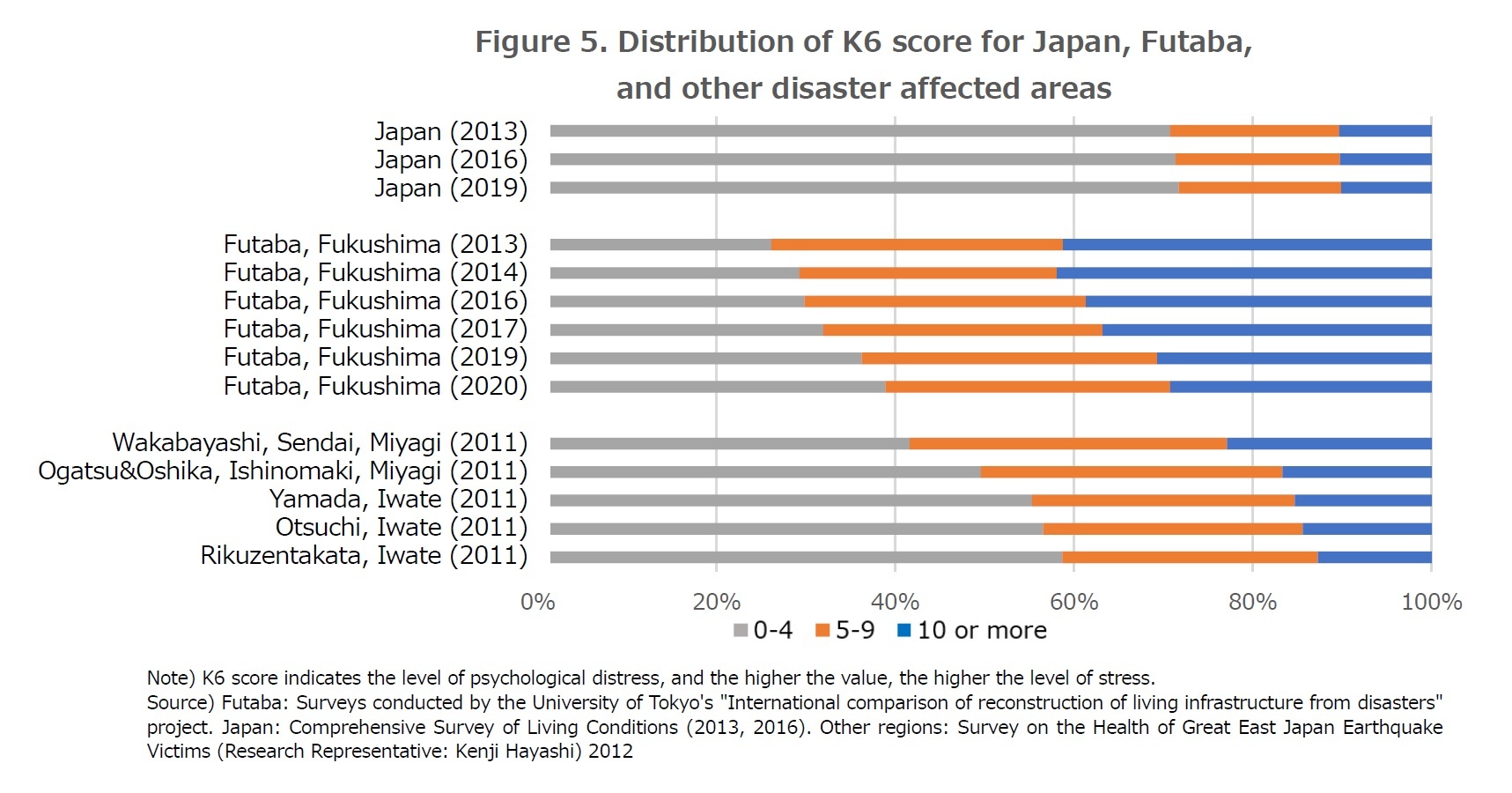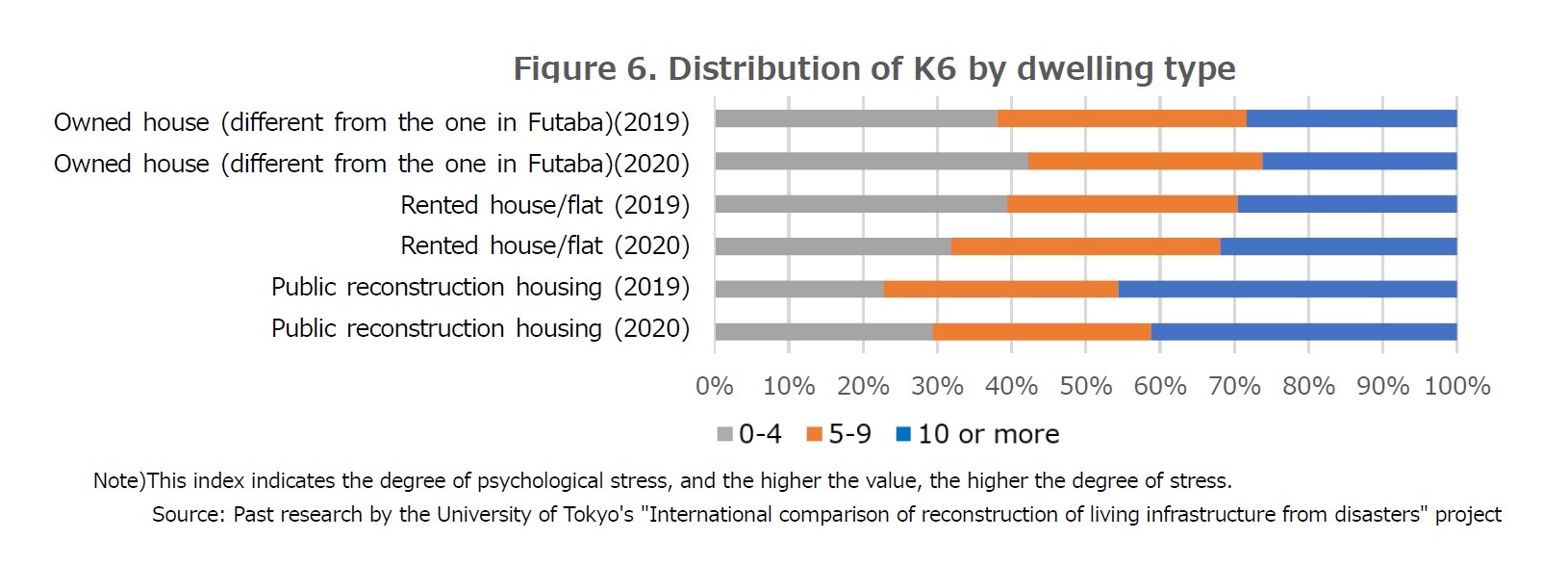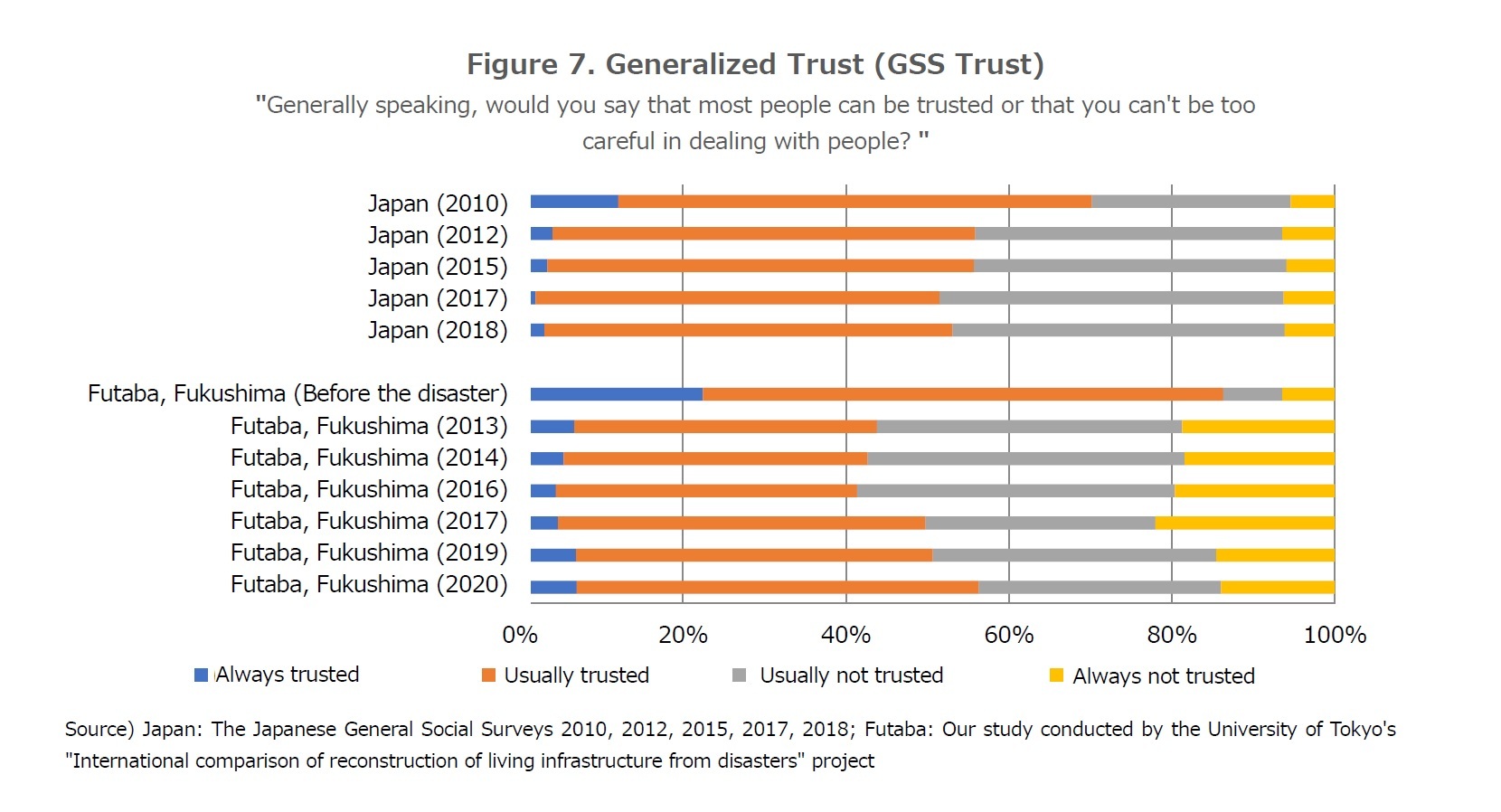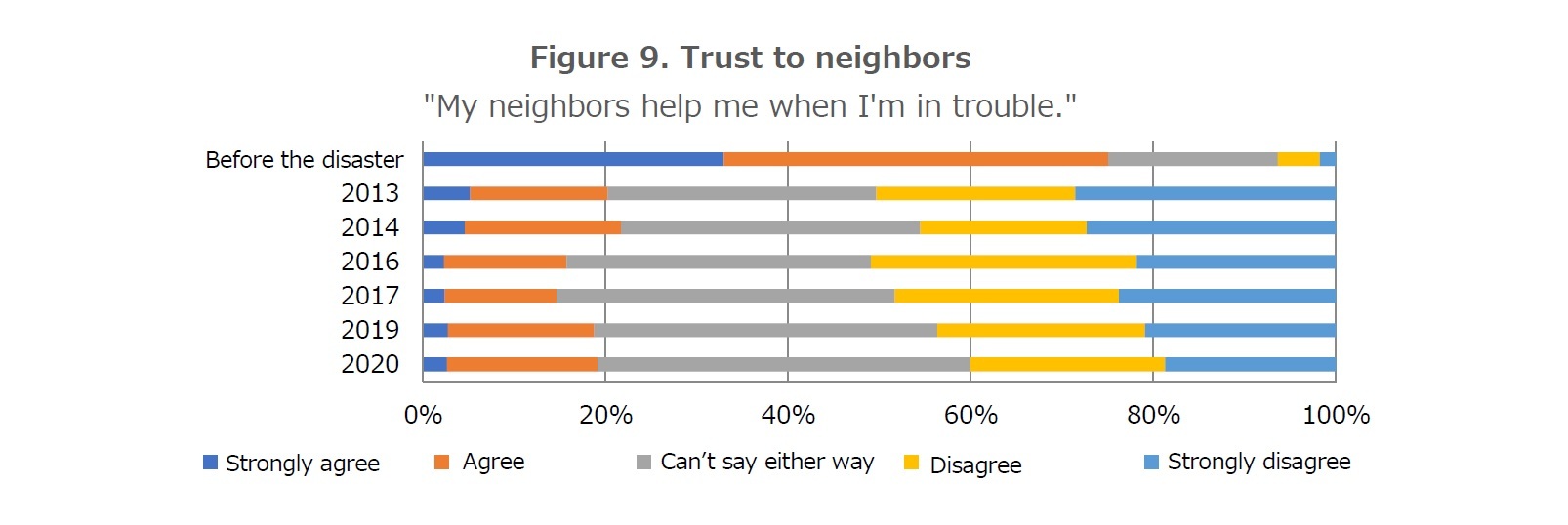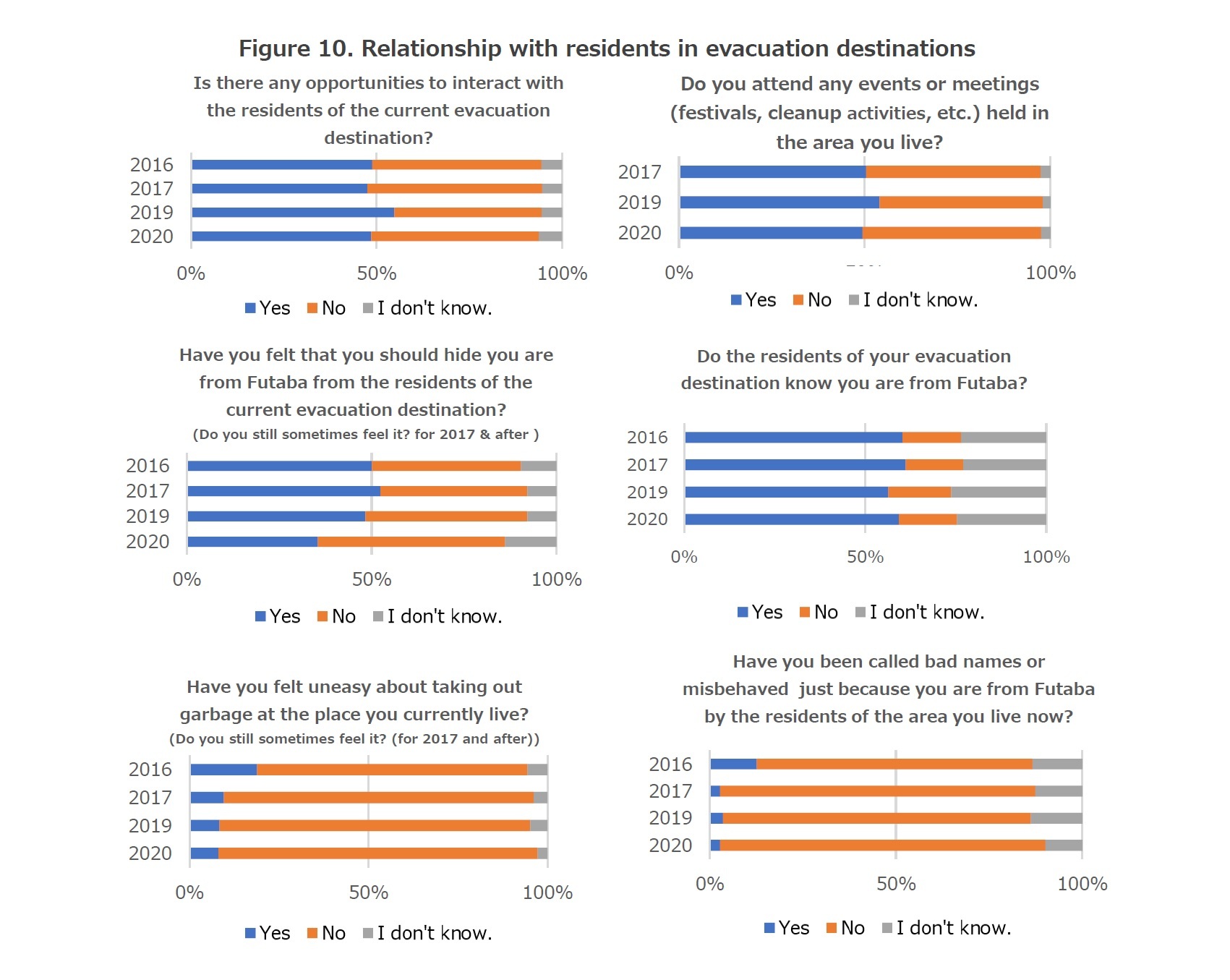- NLI Research Institute >
- Life >
- Damage, Living Environment, and Reconstruction under the Great East Japan Earthquake-The 6th Survey of Nuclear Disaster Evacuees from Futaba, Fukushima, Summary of Results 2020
Damage, Living Environment, and Reconstruction under the Great East Japan Earthquake-The 6th Survey of Nuclear Disaster Evacuees from Futaba, Fukushima, Summary of Results 2020
Insurance Research Department Keiko Iwasaki
Font size
- S
- M
- L
1――Basic Information
Figures 1 and 2 show the distribution of age and sex of the respondents. As we can see from these figures, compared to the age and sex distribution reported in the national census, the age distribution of the respondents is left-skewed, with the majority of respondents in their late 60s. The sex distribution shows that the majority of respondents are male. In addition, since the survey was conducted after the tremendous disaster, it is possible that the distributions of the respondents' characteristics are significantly different from those of general questionnaire surveys. Therefore, it should be noted that the results of this survey do not necessarily indicate the general trend of Futaba residents.
1 This research has been supported by the following research grants.
Grant-in-Aid for Scientific Research (15 J09313, 26220502, LZ003), Research Grants of the Japan Center for Economic Research. This study is approved by the Ethics Committee of the University of Tokyo (20-244).
2――Health conditions
3――Change in social capital
There are several indicators that are commonly used to measure social capital, but we focus on three items here. First, we check the level of "generalized trust" using GSS trust question, which is one of the most commonly used social capital measures. As shown in Figure 7, generalized trust among Futaba residents had been decreasing from 2013 to 2016 (Portion of those who think people can be trusted had been decreasing). However, since 2017, the portion of those who thinks people can be trusted has been gradually increasing (See Figure 7). The overall distribution is almost same as that of Japan as of 2019. On the other hand, Since Futaba had very high generalized trust level before the disaster, recovery to its original high level would take much longer time.
The second indicator of social capital, "frequency of mutual assistance with neighbors," also shows a gradual recovery trend. In addition, the third indicator of social capital, "trust to neighbors" also shows a gradual recovery trend since 2016, but both trends have been very moderate. It will take a very long time for social capital to recover, and we believe it is important to continue to monitor these changes over the long term.
4――Building relationship with residents at evacuation desitinations
5――Summary of the findings from the five rounds of surveys
(2) In particular, there was a possibility that mental health of those who had lived in temporary shelters for long time was in a serious condition. However, currently, even after many of the residents have already moved from temporary shelters to public reconstruction housings, mental health of residents in public reconstruction housings is in a serious condition, and continuous support is necessary.
(3) As to changes in income and health condition caused by the disaster, we find that the greater the extent of decrease or deterioration is, the greater the degree of decline in individual well-being tends to be. This implies the necessity of sufficient compensation to recover the original state of survivors’ well-being.
(4) The disaster has weakened social capital of Futaba residents, and recovery may take very long time.
(5) Keeping in touch with people who had been friends from pre-disaster time and participating in hobbies and volunteer activities after the disaster may help people maintain good mental health.
(6) Though relationship building with the residents of the evacuation destinations show some progress little by little, the progress is subtle and it is still an important challenge evacuees are facing.
(7) Aggravated present bias (procrastination tendency) due to disasters can lead a decline in mental health condition, but policies that promote interaction among residents and encourage good health behaviors can prevent such a decline.
These results have been presented in international and domestic academic conferences. Also, these results have been published in international academic journals. Furthermore, a book, Fukushima Nuclear Disaster and Mental Health was published from Nippon hyoron sha in March 2021. We intend to continue our analysis and contribute to improve disaster preparation/rehabilitation policies.
Participants of our surveys are approximately 27% of households of Futaba and the results do not represent all Futaba residents. Since the survey was conducted after a major disaster, the characteristics of respondents may be very different from general surveys and there is a possibility of an overestimation in deterioration of health condition in our results. Therefore, we need a special caution in interpreting the results, and any definitive judgments based solely on these findings should be avoided.

03-3512-1882




















